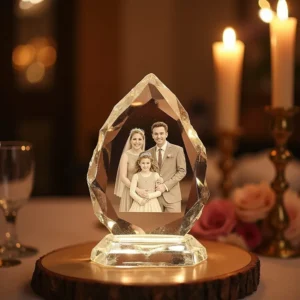Iced Flower Tea Mastery: Brewing Techniques and Scone Pairings Perfected
Iced flower tea is more than a beverage—it’s a celebration of nature’s elegance, transformed into a refreshing, aromatic experience. Paired with artisanal scones, this duo elevates afternoon tea into a ritual of sensory delight. In this guide, we delve into the science of crafting flawless iced flower tea, explore innovative scone pairings, and share secrets to hosting an unforgettable tea gathering.

Why Iced Flower Tea Is the Ultimate Summer Refreshment
The Allure of Floral Infusions
Iced flower tea captivates with its delicate balance of vibrant colors, fragrant aromas, and nuanced flavors. Unlike traditional teas, floral blends like hibiscus, rose, and lavender are naturally caffeine-free, making them ideal for hydration and relaxation. When chilled, these infusions become a crisp, revitalizing drink that pairs seamlessly with both sweet and savory scones.
Top Flowers for Crafting Iced Flower Tea
- Hibiscus: Tart and bold, yielding a ruby-red brew rich in vitamin C.
- Rose Petals: Subtly sweet with romantic undertones, perfect for elegant occasions.
- Lavender: Earthy and calming, ideal for stress-relief iced flower tea.
- Chrysanthemum: A honeyed, mild flavor celebrated in Asian tea traditions.

The Science Behind Perfectly Chilled Iced Flower Tea
Cold Brew vs. Hot Brew: Which Method Wins?
Cold Brew Technique for Maximum Freshness
- Combine 3 tablespoons of dried flowers (e.g., hibiscus or rose) with 4 cups of filtered water.
- Steep in the refrigerator for 8–12 hours to extract flavors without bitterness.
- Strain and serve over flower-shaped ice cubes (made with edible petals).
Why It Works: Cold brewing preserves volatile aromatic compounds, ensuring your iced flower tea retains its floral brilliance.
Hot Brew Method for Depth and Complexity
- Steep 1.5 tablespoons of flowers in 1 cup of 175°F (80°C) water for 5–7 minutes.
- Cool to room temperature, then refrigerate for 2 hours.
- Pour over frozen tea cubes to prevent dilution.
Pro Tip: Add lavender syrup or rose water while the tea is warm for even flavor distribution.
Balancing Sweet and Floral Notes in Iced Flower Tea
Sweeteners That Elevate (Without Overpowering)
- Honey: Enhances floral notes in chamomile or chrysanthemum iced flower tea.
- Agave Nectar: A neutral sweetener for hibiscus or citrus-forward blends.
- Elderflower Cordial: Adds a sophisticated twist to lavender or rose infusions.
Avoiding Common Pitches
- Over-Steeping: Hibiscus becomes overly tart beyond 7 minutes of hot brewing.
- Low-Quality Flowers: Always use organic, food-grade petals to avoid chemical aftertastes.
Scone Artistry: Crafting the Perfect Pairing
The Anatomy of a World-Class Scone
A sublime scone boasts a crumbly exterior, moist interior, and buttery richness. Achieve this by:
- Using grated frozen butter to create air pockets.
- Folding in clotted cream or crème fraîche for tenderness.
- Resting dough for 15 minutes before baking to relax gluten.
Signature Scone Recipes for Iced Flower Tea
- Lemon-Thyme Scones: Zesty citrus complements tart hibiscus iced flower tea.
- Earl Grey & Lavender Scones: Bergamot echoes the floral depth of lavender iced tea.
- Matcha-White Chocolate Scones: Earthy matcha balances sweet chrysanthemum iced blends.

Advanced Pairing Strategies for Iced Flower Tea and Scones
Flavor Synergy: The Golden Rules
- Contrast Pairings: Pair tart hibiscus iced flower tea with creamy vanilla bean scones.
- Harmonious Pairings: Match rose petal iced tea with cardamom-pistachio scones for spice undertones.
Seasonal Menus
- Spring: Cherry blossom iced flower tea + rhubarb-almond scones.
- Summer: Jasmine iced tea + peach-rosemary scones.
- Autumn: Chamomile-apple iced blend + cinnamon-walnut scones.

Presentation: Transforming Tea Time into a Sensory Journey
Glassware and Garnishes
- Serve iced flower tea in cut-crystal pitchers with floating rose petals.
- Present scones on slate boards alongside lavender honey and rose petal jam.
Temperature Control Hacks
- Pre-Chilled Cups: Store glasses in the freezer for 10 minutes before serving.
- Warm Scones: Reheat scones at 300°F for 5 minutes to revive buttery aromas.
Health Benefits of Iced Flower Tea: Beyond Refreshment
Wellness-Boosting Properties
- Hibiscus: Lowers blood pressure and supports liver health (NCBI study link).Learn how to choose organic flowers here.
- Lavender: Reduces anxiety and improves sleep quality (Healthline reference).
- Rose Petals: Rich in antioxidants for skin radiance.
Brewing for Therapeutic Effects
- Stress-Relief Blend: Combine lavender, chamomile, and lemon balm for a calming iced flower tea.
- Digestive Aid: Steep peppermint and chrysanthemum to soothe stomach discomfort.
Conclusion: Elevate Your Tea Ritual with Mastery
Mastering iced flower tea and scone pairings is an art that marries precision with creativity. By selecting premium ingredients, refining brewing techniques, and curating harmonious flavors, you’ll craft an experience that transcends ordinary tea time. Whether hosting a garden party or savoring a quiet moment, let every sip and bite reflect nature’s elegance.

FAQs
- Can I reuse flowers after brewing iced flower tea?
While petals lose potency, they can be frozen into decorative ice cubes for future iced flower tea batches. - What’s the ideal sugar-to-water ratio for sweetening iced flower tea?
For 1 liter of iced flower tea, dissolve 3–4 tbsp of honey or agave syrup while the brew is warm. - How do I prevent scones from becoming dry?
Use buttermilk or yogurt in the dough, and avoid overmixing. - Are there caffeine-free alternatives for traditional tea lovers?
Yes! Iced flower tea made from chamomile or hibiscus offers complexity without caffeine. - Can I make iced flower tea with fresh garden flowers?
Absolutely—ensure they’re pesticide-free and rinse thoroughly. Drying petals concentrates their flavor.

